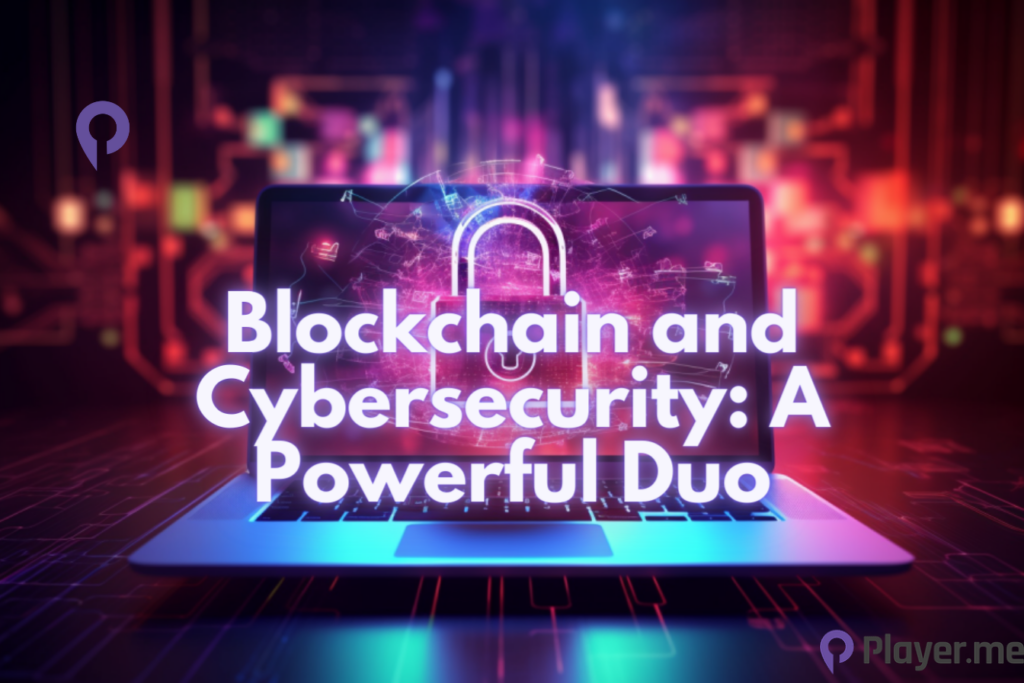In our hyper-connected digital era, where cyber threats and data breaches loom ominously, the imperative for ironclad cybersecurity measures has never been more pressing. Enter blockchain technology, a formidable weapon in fortifying our digital defences.
When the inherent security features of blockchain join forces with the best practices of cybersecurity, a mighty alliance is forged. Together, they provide an unprecedented shield, amplifying protection and instilling unshakable trust in the vast expanse of the digital realm.
Prepare to explore the potent synergy between blockchain and cybersecurity and discover their transformative potential in safeguarding our most sensitive information.
Also read: 5 Steps to Becoming a Millionaire with Meme Coin: Is It an Ultimate Scam?
Understanding Blockchain Technology
To grasp the significance of the blockchain-cybersecurity partnership, let’s first delve into blockchain technology.
At its core, blockchain is a decentralised and immutable ledger that records transactions across multiple computers, known as nodes. Its key features, such as transparency, immutability, and cryptographic security, make it a highly reliable and tamper-proof system.
Each transaction, or “Block”, is securely linked to the previous one, forming a chain of data that cannot be altered without the consensus of the network participants.
Strengthening Cybersecurity with Blockchain
Integrating blockchain technology with cybersecurity brings numerous advantages to digital security systems. Let’s explore how blockchain enhances cybersecurity measures:
Data Integrity and Immutability
One of the fundamental strengths of blockchain is its immutability. Once data is recorded on the blockchain, it becomes virtually impossible to modify or tamper with. This characteristic is particularly valuable in the realm of cybersecurity, where data integrity is crucial.
By leveraging blockchain, organisations can ensure that sensitive information remains intact and free from unauthorised alterations.
Enhanced Authentication and Identity Management
Cybersecurity relies heavily on secure authentication and identity management systems. Blockchain-based solutions offer robust mechanisms for establishing and verifying identities, mitigating the risks associated with identity theft and impersonation.
Decentralised identity management systems built on blockchain give individuals greater control over their personal information while minimising the potential for data breaches.
Immutable Audit Trails and Transparency
Blockchain’s transparent nature allows for the creation of immutable audit trails, which play a vital role in cybersecurity.
The blockchain provides a verifiable history of activities by recording every transaction and storing it across multiple nodes. This feature enables swift and accurate detection of unauthorised changes or suspicious activities, aiding in preventing and investigating cyber threats.
Applications of Blockchain and Cybersecurity
Here are some of the most common use cases of blockchain for cybersecurity purposes:
Supply Chain Security
The integration of blockchain and cybersecurity can significantly enhance supply chain security.
By leveraging blockchain’s transparent and immutable nature, organisations can track and verify the movement of goods throughout the supply chain. This ensures product authenticity, minimises counterfeiting risks, and provides a reliable system for stakeholders to validate each supply chain step.
Secure Digital Identity
Digital identity theft is a growing concern in today’s digital landscape, and blockchain-based identity management systems offer a promising solution by enabling individuals to have more control over their personal information.
By decentralising identity verification and storage, blockchain reduces the risk of a single failure point and strengthens personal data security.
Decentralised Applications
Blockchain-based decentralised applications provide a secure alternative to traditional centralised applications. dApps operate on a distributed network of nodes, ensuring multiple participants validate and verify data and transactions. This distributed consensus mechanism eliminates single points of failure and makes dApps more resilient to cyber-attacks.
Conclusion
As the digital landscape continues to evolve, blockchain and cybersecurity partnerships emerge as a powerful duo in fortifying digital security systems.
By combining the inherent security features of blockchain with robust cybersecurity practices, organisations can enhance data integrity, strengthen authentication mechanisms, and create transparent and tamper-proof systems.
Frequently Asked Questions
How Does Blockchain Technology Enhance Cybersecurity?
Blockchain technology enhances cybersecurity by providing inherent security features such as data immutability, decentralised authentication, and transparent audit trails. The immutability of blockchain ensures that once data is recorded, it cannot be altered or tampered with, thereby safeguarding data integrity.
Additionally, blockchain-based authentication systems offer robust identity management, reducing the risk of identity theft and impersonation. The transparent nature of blockchain allows for the creation of immutable audit trails, enabling swift detection of unauthorised changes and facilitating the investigation of cyber threats.
Can Blockchain Technology Prevent All Cyber-Attacks?
While blockchain technology significantly improves cybersecurity, it is not a foolproof solution to prevent all cyber-attacks.
Blockchain should be seen as an additional layer of security that complements existing cybersecurity measures rather than a complete solution on its own.
Due to its immutable and decentralised nature, blockchain can mitigate certain types of attacks, such as data tampering and unauthorised changes. However, it does not protect against all possible vulnerabilities, such as social engineering attacks, malware, or phishing attempts.
What Are Some Practical Applications of Blockchain and Cybersecurity?
Blockchain and cybersecurity have practical applications in various industries. They can enhance supply chain security, improve digital identity management, secure financial transactions, protect healthcare data, and provide a secure framework for the Internet of Things (IoT).





